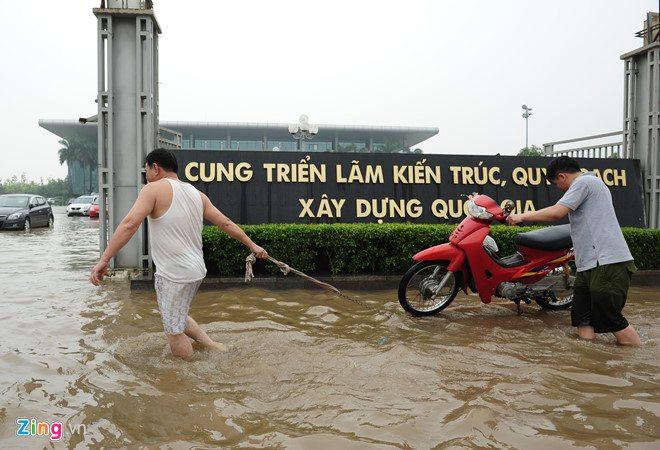Contracts on transfer, donation, mortgage or contribution of land use rights as capital or the rights to use land and land-attached assets (contracts on purchase of real estate) must be notarized or certified. Below are guidelines for the procedure of notarization of real estate purchase contracts according to Vietnam’s law.

Step 1: Prepare dossier
According to Article 167 of the Land Law and Articles 40, 41 of the Law on Notarization of Vietnam, dossier for notarization of real estate purchase contract include:
- A notarization request containing information on full name and address of the notarization requester, contents to be notarized and list of enclosed papers; name of the notarial practice organization, full name of the dossier recipient, and time of dossier receipt;
- The draft real estate purchase contract
* Seller shall prepare the following documents:
- Certificate (red book);
- Personal identity paper: ID card or citizen ID card or passport (of both husband and wife);
- Household registration book;
- Proof of marital status (marriage registration);
- Authorization contract (if any).
* Buyer shall prepare the following documents:
- Personal identity paper: ID card or citizen ID card or passport;
- Household registration book;
- Proof of marital status.
Note: The copies may be photocopied, printed or typewritten copies containing full and accurate contents as the originals and do not need to be certified.
Step 2: Submit dossier
Notarization requesters submit their documents at a Notary Public (public non-business unit of the State) or a Notary Public Office (private) within the central-affiliated province or city where the real estate is located.
Step 3: Receive notarization request
- A notary shall check the papers in a notarization request dossier.
- When the dossier is complete and valid as prescribed by law, he/she shall accept it and record it in the notarial register.
- If the application is incomplete, he/she shall request to supplement dossier.
Step 4: Conduct notarization
Notarization of ready-made contracts
- Notaries shall guide notarization requesters to comply with regulations on notarization procedures and relevant regulations on performance of contracts; clearly explain to notarization requesters their rights, obligations and lawful interests as well as the significance and legal consequences of their entry into contracts.
- When having grounds to believe that a notarization request dossier contains unclear matters, the contract or transaction was concluded under threat or coercion, or having doubts about the civil act capacity of the notarization requester, or the object of the contract or transaction has not yet been specifically described, a notary may request the notarization requester to clarify the matters or, at the request of the notarization requester, conduct verification or request assessment; if the matters cannot be clarified, the notary has the right to refuse to notarize.
- A notary shall check the draft contract or transaction; if the draft contains some articles and clauses contrary to law or social ethics or the object of the contract or transaction is incompliant with law, he/she shall point them out for the notarization requester to modify. If the notarization requester fails to modify, the notary has the right to refuse to notarize.
- The notarization requester shall himself/herself read again the draft contract or transaction or request the notary to read it.
- If agreeing with the whole contents of the draft contract, the notarization requester shall sign every page of the draft. The notary shall request the notarization requester to produce the originals of the papers for comparison before writing testimonies and signing every page of the contract.
Notarization of contracts drafted by notaries at the request of notarization requesters
- A notary shall check the papers in a notarization request dossier. When the dossier is complete and valid as prescribed by law, he/she shall accept it and record it in the notarial register.
- Notaries shall guide notarization requesters to comply with regulations on notarization procedures and relevant regulations on performance of contracts and transactions; clearly explain to notarization requesters their rights, obligations and lawful interests as well as the significance and legal consequences of their entry into contracts or transactions.
- When having grounds to believe that a notarization request dossier contains unclear matters, the contract or transaction was concluded under threat or coercion, or having doubts about the civil act capacity of the notarization requester, or the object of the contract or transaction has not yet been specifically described, a notary may request the notarization requester to clarify the matters or, at the request of the notarization requester, conduct verification or request assessment; if the matters cannot be clarified, the notary has the right to refuse to notarize.
- When the contents of, and the intention of concluding, the contract or transaction are true, lawful and consistent with social ethics, the notary shall draft the contract or transaction.
- The notarization requester shall himself/herself read the draft contract or transaction or the notary shall read it for him/her. If agreeing with the whole contents of the draft contract or transaction, the notarization requester shall sign every page of the draft. The notary shall request the notarization requester to produce the originals of the papers for comparison before writing testimonies and signing every page of the contract or transaction.
Note: The notarization time limit is two working days; for complicated contracts or transactions, this time limit may be longer but must not exceed 10 working days.
Le Vy
- Key word:
- Land Law 2013 of Vietnam
 Article table of contents
Article table of contents







.Medium.png)
.Medium.png)
.Medium.png)
.Medium.png)
